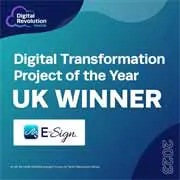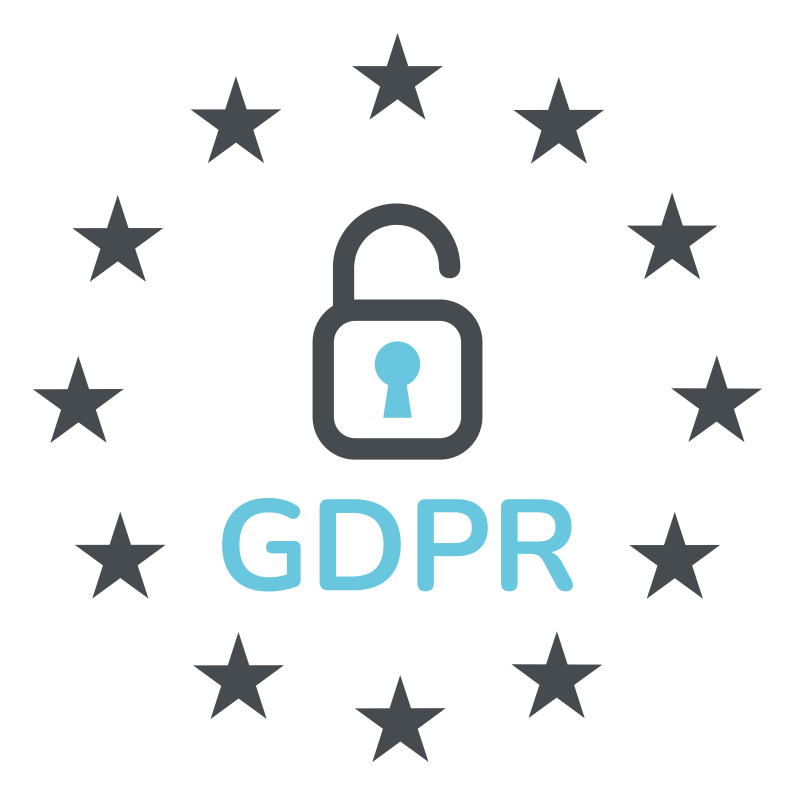A Guide to the Legality of E-Signatures in Europe
Thomas Taylor
Managing Director
PUBLISHED
19th November, 2024
Are electronic signatures legally binding? This is one of the most commonly asked questions when it comes to e-signatures, as individuals and organisations need to feel confident that any documents they send and sign electronically are legally valid.
In this guide, we will explore the legality of e-signatures in Europe, so you can develop a greater understanding of the validity of electronic signatures and stay fully compliant with relevant European laws and regulations regarding their use.
Are electronic signatures legal in Europe?

Yes, electronic signatures are legal in Europe and they are recognised by the Electronic Identification and Trust Services (eIDAS) regulation. The eIDAS regulation was introduced in 2016 to replace the eSignature Directive of 1999. It was a significant milestone for the legality of e-signatures as it established a clear framework for providers to adhere to.
The main objective of the regulation following its introduction was to increase confidence in using electronic transactions across borders while strengthening the effectiveness of online services and platforms.
Why is eIDAS important?
Technology is constantly evolving and digital services like eSignatures have become more prominently used by businesses and individuals. However, whilst this increase in digital signature usage was beneficial, there needed to be suitable legislation in place that would hold trust service providers accountable for maintaining highly secure systems that protected signers and legally binding signatures. To remove any doubt or question over the authenticity of a document.
The introduction of eIDAS meant that a framework could be implemented that accurately addressed the needs and concerns of electronic document solutions and kept up with industry demands. eIDAS is also currently being reformed to reflect further advancements in identification technology, as we will discuss later on.
What does the eIDAS framework include?
In its framework, eIDAS defines three types of electronic signatures that can be used for a wide range of use cases. These types of signatures are simple, advanced and qualified.

Simple electronic signatures
As the name suggests, this type of electronic signature is the simplest. Meaning it can be any form of signature that confirms the signer’s acceptance or approval of a document. For example, this can include clicking an ‘I accept’ checkbox or using a scanned handwritten signature. There are no set requirements for security or identity verification with simple eSignatures. This makes them best suited for use on less important or non-official documents, where there won’t be any legal implications.
Advanced electronic signatures
Advanced electronic signatures offer more security and validity than simple signatures. As they are required to meet set criteria in order to be valid under the eIDAS regulation. This means they must provide a greater level of security, ID verification, and tamper-sealing in addition to being:
- Capable of correctly identifying the signer
- Uniquely linked to the signer
- Created using eSignature data that the signer has complete control over and can be confident that they have the sole ability to sign it
- Linked to the data in a document so that the signer can monitor for further changes
Qualified electronic signatures
As well as meeting the requirements for advanced signatures, qualified e-signatures have to meet additional criteria to be issued with certification (only an accredited Qualified Trust Service Provider (QTSP) can issue a qualified certificate). The identity verification process for these types of signatures is multi-step, using both two-factor authentication and encrypted keys. Qualified signatures must meet the following eIDAS requirements:
- Protect the confidentiality of signature creation data
- Ensure that only one use of the signature is allowed
- Be appropriately protected by the signer
- Ensure the signature is secured against forgery
- Not change the data or prevent it from being presented to the signer before adding their signature
What did eIDAS establish for e-signature legality in Europe?

The eIDAS regulation has had an important impact on digital transactions and helps organisations feel assured that their signed documents are legally binding and compliant. Below are some key points about the legality of electronic signatures in Europe that were established through eIDAS.
- Mutual recognition – a qualified electronic signature (QES) with a qualified certificate that is issued in one European country in the EU is recognised across all other EU members and in the UK.
- Legal effect – e-signatures (in particular advanced and qualified ones that meet extra security and verification requirements) have the same legal weight and impact as a handwritten signature.
- Cross-border use – the eIDAS regulation ensures that electronic signatures can be legally used across borders.
- Time stamping – eIDAS introduced time stamping to help authenticate signatures and digital documents.
- Non-discrimination principle – eSignatures cannot be denied legal effect in Europe simply because they are in an electronic format.
- Electronic seals – the eIDAS regulation introduced electronic seals, which are similar to e-signatures except they are intended for use by legal entities.
The benefits of eIDAS for businesses
There are several benefits of the eIDAS regulation for organisations including:
Increased trust and security across transactions
eIDAS offers users assurance that their electronic transactions are protected. Also, the process is more streamlined and user-friendly, making it quicker and easier to capture signatures for important documents.
Standardisation and transparency
eIDAS enforces uniform standards for providers offering trust services across the EU. Which makes these services more transparent, and establishes a Digital Single Market (DSM). This means that trust services complying with the regulation can be openly circulated in the internal market.
Interoperability and service convenience
The eIDAS regulation for electronic identification and trust services makes it easier and quicker for organisations to complete transactions from anywhere in the EU. This is beneficial for a wide range of businesses as collaboration and remote working partnerships become more and more commonplace.
Minimise process costs
eIDAS provides more flexibility for businesses and organisations to transition to digital documents rather than paper. Therefore, they can reduce paper-based costs, easily share documents, and shorten the length of time the identification and customer acquisition process takes.
eIDAS 2.0 and digital identities

Even though the original eIDAS regulation is still an integral framework for the use of electronic signatures and other trust services. 10 years after its initial development, digital consumer demands and the technology behind them have evolved significantly. And the current regulation does not account for the changes.
Reliance on digital solutions has increased at a much faster rate than anticipated due to global events. With that in mind, discussions for eIDAS 2.0 began in 2020 following the coronavirus pandemic. One of the main objectives of the new eIDAS regulation is to encourage organisations to use secure and trusted digital identity solutions. As well as addressing the gaps that could not be filled by the previous framework.
Changes in the eIDAS 2.0 regulation will focus on three key areas:
- Resolving weaknesses in the existing regulation
- Expanding to cover additional trust services such as electronic registered mail, electronic certificates for authentication, and more
- Proving identities with the Digital Wallet
A core part of eIDAS 2.0 is digital identities and the introduction of the Digital Identity Wallet (DIW). Digital identities are a digital representation of the essential details that make up an individual’s identity, such as name and age. It can also include other information depending on your preference, for example, an address and biometric data (face scan or fingerprint).
A digital identity allows you to prove your identity quickly and easily, without the hassle of presenting physical documents. With a DIW, you will be able to securely store and manage your digital identity all from one place.
Conclusion
Electronic signatures are legally valid and binding in Europe thanks to the eIDAS regulation, which recognises and governs their use. The eIDAS regulation continues to be invaluable in protecting organisations during digital transactions and ensuring trust service providers meet the required standards for legally compliant e-signatures. Also, the introduction of eIDAS 2.0 is going to have an important impact on electronic signatures and digital documents. As more methods of identity verification and authentication are introduced.
Start your digital transformation with E-Sign
If you’re looking to streamline your digital document processes and save time, money, and hassle during key transactions, E-Sign is the ideal solution for you. As an industry-leading electronic signature and digital document solutions provider, we understand the importance of having secure and compliant e-signatures.
Contact us today to discuss your requirements with our digital transformation team. They will be able to help provide you with a tailored solution that meets your document needs. You can also get started with E-Sign by registering for our 14-day free trial and experience the features and functionality of the platform for yourself to see how it could work for your organisation.
 Facebook
Facebook
 X (Twitter)
X (Twitter)
 LinkedIn
LinkedIn











